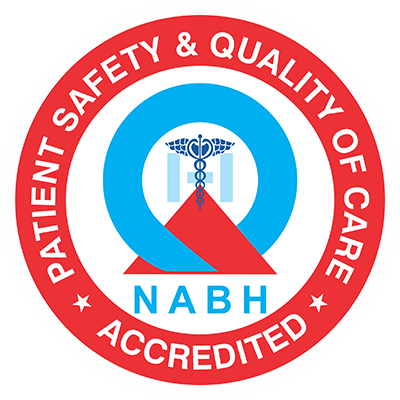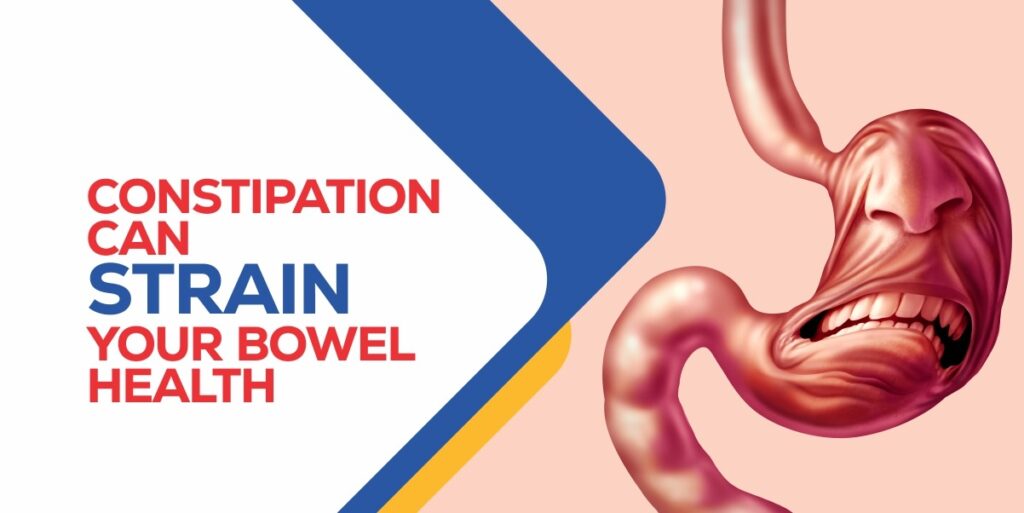Approximately 20% of the global population, equivalent to over 1.5 billion people, grapple with Chronic Constipation. It can occur irrespective of age – from babies to children to adults to the elderly. Statistically, constipation affects twice as many women as men, and is also more commonly seen in seniors and pregnant women.
It’s not just about the discomfort; Chronic Constipation can lead to serious health complications in the long-run. This seemingly mundane condition, often trivialized, significantly impacts daily life and well-being. And the silence around this topic exacerbates the problem, as many hesitate to seek help due to embarrassment or misinformation. Normalizing conversations about bowel health helps us take proactive steps towards managing and preventing the problem.
The root causes of Constipation
Constipation can result from a variety of factors, including dietary habits, lifestyle choices, and medical conditions. Stress and mental health issues can further aggravate the problem, as the gut-brain axis plays a crucial role in digestive health. Poor dietary choices, such as low fiber intake and inadequate hydration, are common culprits. Fiber adds bulk to stools and promotes regular bowel movements, while hydration helps soften the stool. Sedentary lifestyles also contribute to constipation, as physical activity helps stimulate intestinal movement. Additionally, certain medications, such as painkillers and antidepressants, can lead to constipation as a side effect. Medical conditions like diabetes, hypothyroidism, and neurological disorders like Parkinson’s disease can also cause constipation.
The alarm bells for Constipation
The symptoms of chronic constipation include infrequent bowel movements (fewer than three times per week), hard or lumpy stools, straining during bowel movements, and a sensation of incomplete evacuation. In some cases, constipation can lead to more serious conditions like fecal impaction or bowel obstruction, which require immediate medical attention.
The health impact of Constipation
For the majority of people, Constipation rarely leads to serious issues, and can be resolved with medication and lifestyle changes. However, untreated chronic constipation can lead to a range of complications such as the formation of haemorrhoids – commonly known as piles, faecal impaction – a condition where dry, hard stools accumulate in the rectum, and bowel incontinence – characterized by the leakage of liquid stools.
Proactive steps for preventing Constipation
* Diet: Incorporate a diet rich in fiber with fruits, vegetables, whole grains, and legumes, which helps increase stool bulk and regularity
* Hydration: Drink at least 8-10 glasses of water daily, more if consuming high-fiber foods or exercising, to prevent hard stools and ease bowel movements
* Exercise: Regular physical activity, even moderate like walking or yoga, stimulates intestinal movement and can prevent constipation
* Routine: Establish a regular bowel routine, particularly after meals, to take advantage of natural gut motility and promote regularity
* Stress Management: Techniques like meditation, deep breathing, and relaxation exercises can improve gut motility and overall digestive health
* Medication Awareness: Consult healthcare providers about medications that may cause constipation and explore alternatives or supportive treatments
When to seek medical attention for Constipation
* Duration: If constipation persists for more than three weeks, it may indicate a more serious condition that requires medical evaluation
* Pain and bleeding: Experiencing severe pain during bowel movements or noticing bloody stools can be signs of complications like fissures or hemorrhoids
* Weight loss: Unexplained weight loss accompanying constipation could be a symptom of a more serious underlying health issue and warrants medical investigation
Who can treat Constipation?
Constipation can be treated by different types of healthcare professionals depending on the severity and underlying causes:
* Primary Care Physicians or General Practitioners (GPs): They can be the first point of contact for those experiencing constipation. GPs can provide the initial assessment and treatment, which may include dietary and lifestyle advice, over-the-counter laxatives, and education on bowel habits.
* Gastroenterologists: These are specialists who focus on diseases of the digestive system, including constipation. They should be consulted when constipation is chronic, severe, or not responding to initial treatments suggested by the GP. Gastroenterologists perform diagnostic tests like colonoscopy or sigmoidoscopy to examine the colon and rectum for potential causes of constipation.
* Pediatricians (for children): In the case of children, pediatricians manage constipation, often focusing on diet and behavioural changes.
* Dietitians or Nutritionists: They provide specialized dietary advice to help manage constipation, especially where it is a result of a bad diet and lifestyle.
* Physical Therapists: If the cause of constipation is diagnosed as pelvic floor dysfunction, physical therapy is recommended.
* Proctologists or Colorectal Surgeons: They step-in when surgical intervention is needed; or for the management of conditions like hemorrhoids arising from chronic constipation.
When looking for treatment for Chronic Constipation, it is advisable for careseekers to approach a full-fledged hospital that has the necessary cross-functional team and infrastructure to treat the condition.
BBR Hospitals, Hyderabad has a deeply experienced team of doctors and surgeons who understand the intricacies of digestive health. Its state-of-the-art Gastroenterology department, staffed with expert professionals, is dedicated to providing comprehensive care for digestive disorders. Utilizing the latest diagnostic tools such as high-resolution colonoscopies and sigmoidoscopies, and advanced treatment methods, they ensure the best outcomes for patients. Compassionate pediatricians and nutritionists work together to tailor treatments for younger patients.
In addition to medical treatment, BBR Hospitals adopts a holistic approach to curing Constipation. Its expert dietitians provide personalized dietary plans focusing on high-fiber diets and proper hydration to naturally alleviate constipation. BBR Hospitals also offers specialized physical therapy services, including biofeedback and pelvic floor rehabilitation. The hospital’s patient-focused care and reassuring environment not only provide relief from Constipation but also serve to improve the overall quality of life in the long-run



